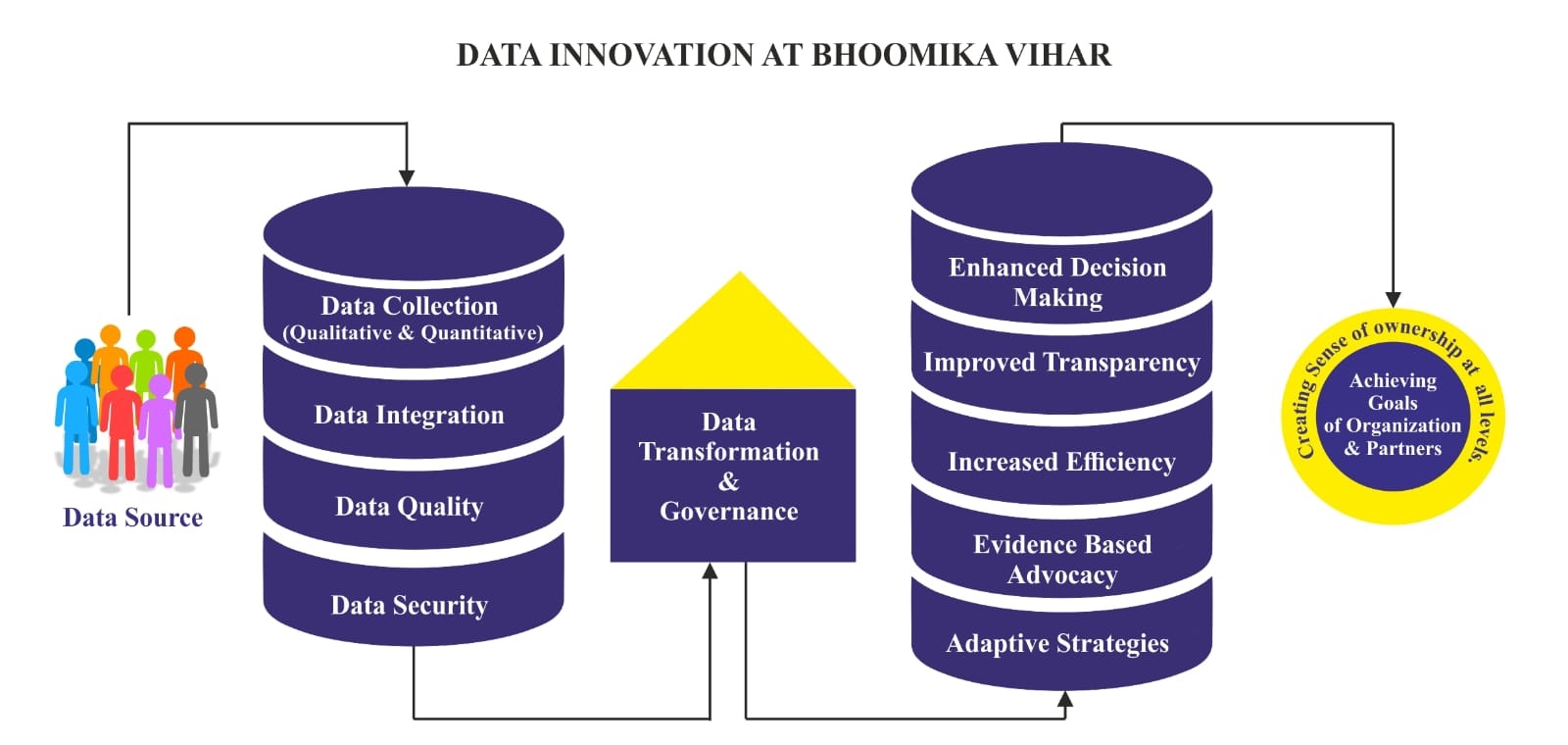Bhoomika Vihar, a pioneering social organization in Bihar, excels in leveraging both qualitative and quantitative data to drive its initiatives. This robust data management ensures transparency, efficiency, and impactful implementation across all projects. By fostering data innovation, the organization continually adapts and improves its processes, ensuring timely and effective interventions. Bhoomika Vihar meticulously maintains data across various domains, including program management, accounting, human resources, supply chain and logistics, media archives, and ground zero reports for evidence-based advocacy

Bhoomika Vihar prepares detailed ground zero reports for evidence-based advocacy, including:
Bhoomika Vihar's commitment to data innovation transforms its operational and strategic landscape. Here’s how:
Bhoomika Vihar's meticulous data management and innovative practices have been instrumental in driving social change and supporting vulnerable communities in Bihar. By leveraging data for informed decision-making and continuous improvement, the organization enhances the impact and reach of its initiatives, ensuring sustainable and transformative outcomes.

2020 Bhoomika Vihar. All Rights Reserved Developed and Hosting by eServicePlus